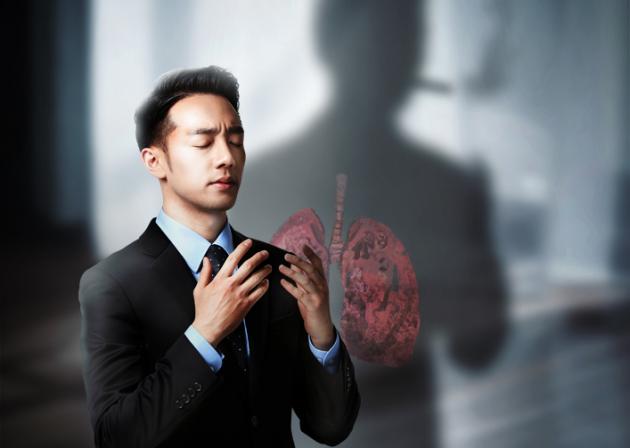The government’s pilot program to screen lung cancer has found eight people with an early stage of lung cancer among the 3,112 participants.
The Ministry of Health and Welfare and the National Cancer Center said on Tuesday that their pilot program to check lung cancer, conducted in April, discovered eight lung cancer patients, who are now under treatment.
According to the ministry, 3,112 people have received the lung cancer check as of Nov. 10. Of them, 2,468 have received their examination results and 147, or 6 percent, were diagnosed with suspected lung cancer. The diagnosis for eight was confirmed as lung cancer, and the eight are now going through surgery or anticancer treatment.

The eight were 68.9 years old on average, and their average pack-year stood at 39.3. A pack-year is calculated by multiplying the number of packs of cigarettes smoked per day by the number of years the person has smoked. One pack-year is equal to smoking 365 packs for one year.
Among the eight with confirmed lung cancer, five (62.5 percent) had a successful surgery and are under observation through outpatient examination. The remaining three are receiving a radiation therapy or anticancer treatment without an operation.
The pilot program aims at gauging the feasibility of a state-run cancer checkup program and adopting a safe and effective system. The program is on people with high-risk lung cancer, who are aged between 55 and 74, and who have more than 30 pack-years of smoking history.
Despite the disease’s high mortality rate and low survival rate, proper checkups of lung cancer were rare in and out of Korea. With experts continuously urging for an early diagnosis of lung cancer, however, the Health and Welfare Ministry and the National Cancer Center have established a lung cancer check recommendation in 2015, based on local and overseas studies.
Eleven medical institutions are participating in the pilot program, led by the National Cancer Center. Then, the NCC added three more hospitals in October. The participating hospitals are the NCC, Gachon University Gil Hospital, Kangwon National University Hospital, Pusan National University Hospital, Seoul National University Hospital, Ajou University Hospital, Ulsan University Hospital, Jeju National University Hospital, Chungnam National University Hospital, Chilgok Kyungpook National University Medical Center, Chonnam National University Hwasun Hospital, Kyung Hee University Hospital at Gangdong, Korea University Guro Hospital, and Chonbuk National University Hospital.
Under the pilot project, participating hospitals select people among those who went through the state health checks or who participated in a smoking cessation clinic, considering their age and smoking history. After receiving individual agreements, the hospital carries out computed tomography (CT) on their chests for free. Those who had a state health check at other hospitals, they can take their check results to the 14 participating hospitals and see if they can be part of the program.
The government will wrap up the first-phase pilot program by December and start the second one, in a similar scale to the initial one, next year. By the end of the year, the government will evaluate each participating hospital how much they reached their goals and decided whether to include them in the second-phase program. The government will encourage the hospitals to search for participants and ask their participation actively.
“With the two-year lung cancer examination pilot program, the government will evaluate the effectiveness of lung cancer checks and come up with ways to manage the quality of exam. Then, we will work out a safe examination program,” said Kang Min-kyu, head of the disease policy division at the Ministry of Health and Welfare.

